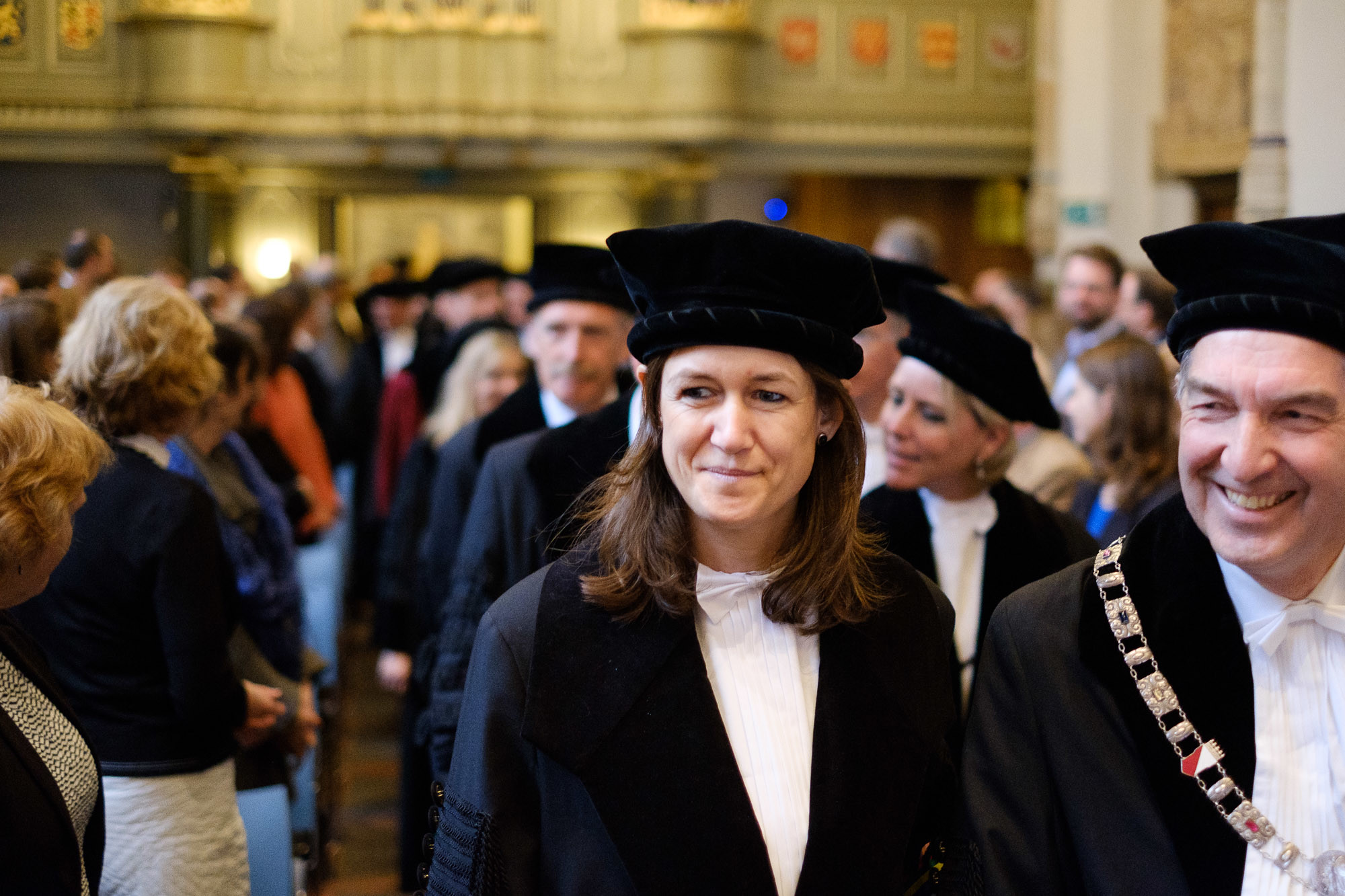Women head 50% of Dutch universities as academic year begins

For the first time ever, the Dutch academic year begins with half the country’s universities being led by a woman.
Last year Nijmegen’s Radboud University appointed José Sanders, professor of communication, as its first rector magnificus, equivalent to chancellor, while Wageningen University named climate scientist Carolien Kroeze as rector.
The two appointment bring the total number of women in the role to seven out of 14 and reflect a drive in recent years to improve the gender balance of their teaching and research staff.
Eindhoven University of Technology tried five years ago to restrict applications for new posts to women for the first six months that they were advertised.
Following a legal challenge the university limited the scope of the preferential policy to between 30% and 50% of open positions, but it still succeeded in ensuring half of new recruits are women.
Margot Weijnen, a board member of the Dutch Research Council (NWO), said “increasing awareness” of gender inequality had encouraged universities to bring about change. In 2022 women accounted for 28% of all full professors, up from 23% four years earlier.
“University boards felt that the time was right when it came to dealing with nominations,” she said. “They have to give women the opportunities to fill positions that in the past were reserved for men.”
Lack of diversity
However, efforts to improve the ethnic diversity of university staff along similar lines have proven more controversial.
Political parties such as the right-wing liberal VVD, the far-right PVV and the orthodox Protestant SGP objected to a plan to collect records of candidates’ ethnic origin in order to identify academic disciplines where minorities were under-represented.
However, since last year Erasmus University in Rotterdam has extended a programme giving extra support to female researchers to cover those with a minority background.
“We want to stimulate diversity in ethnicity and sexual orientation,” university chancellor Annelien Bredenoord told NRC. “We know that the higher you go in our organisation, the less diverse it becomes.”
Thank you for donating to DutchNews.nl.
We could not provide the Dutch News service, and keep it free of charge, without the generous support of our readers. Your donations allow us to report on issues you tell us matter, and provide you with a summary of the most important Dutch news each day.
Make a donation